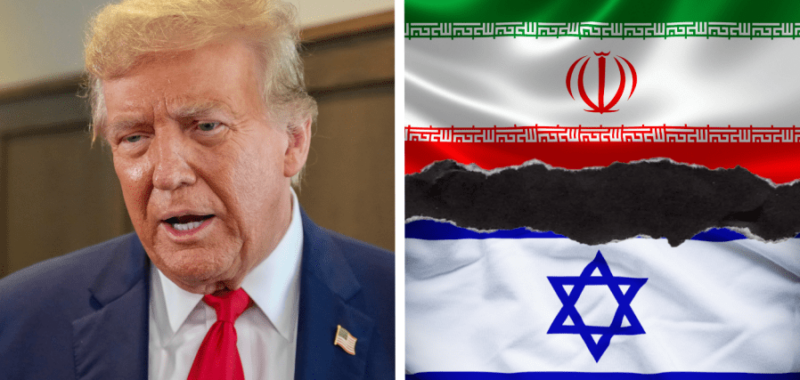
In the wake of Donald Trump’s recent re-election and the revelation of an Iranian plot to assassinate him on the campaign trail, there is much speculation around what the new U.S. administration will mean for the Middle East. This is of particular concern to Israel, where continued Iranian aggression — through terror proxies in Gaza, Syria, Lebanon and Yemen, as well as its advancement toward obtaining nuclear weapons — remain an albatross around the neck of the region’s only democracy.
Whatever one thinks of Trump, my hope is that his administration will release Israel from what my former boss at the United Nations, Ambassador Ron Prosor, called the “triple standard.”
A veteran of Israeli diplomacy, Prosor observed that while all other democracies are given carte blanche in defending themselves (and their interests) at home and abroad, Israel is expected to show extreme restraint. Meanwhile, so little is expected from dictatorships that they are praised for showing even a modicum of moderation.
Take, for example, Israeli military action against Tehran last month. Its targeted and precise measures were part of a strategy that seeks to decimate terrorist infrastructure across the Shia Crescent — an absolute pre-condition to the regional stability we all hope for.
Iran’s muted response to these measures was nothing more than a face-saving PR exercise. And yet, much of the global and press narrative has portrayed Israel as a regional destabilizer and praised Iran for its tempered response to military humiliation.
This is the triple standard in action.
Or take the narrative around the wider war against terror across the Shia Crescent. Since Oct. 8 of last year, Hezbollah has launched over 12,000 rockets at Israeli civilian centers, displacing tens of thousands of civilians indefinitely. Nevertheless, the U.N. still refuses to label Hezbollah a terrorist organization or enforce Resolution 1701, an 18-year-old measure that was supposed to require the group to withdraw north of the Litani River, a full 20 miles from the Israeli border.
In the last few months, Israel has obliterated Hezbollah’s military leadership and capabilities in Lebanon, again through precise and targeted measures. But these actions have drawn little more than hand-wringing ire from Western leaders and media outlets, who have no point of comparison within their own national security contexts. What do you think the U.S. would do if Mexico launched thousands of rockets at Texas?
But what about Gaza? No one can deny the humanitarian crisis unfolding there. At the same time, from millions of text messages to loudspeakers deployed on drones, Israel has taken extraordinary measures to warn civilians, even as doing so often warns enemy fighters and endangers Israeli soldiers. The result of these policies has been one of the lowest combatant-to-civilian death toll ratios in the modern history of warfare.
According to Hamas, nearly 43,000 people have died in Gaza, a figure that is likely inflated and which does not distinguish between civilians and combatants. Israel claimed in mid-August to have killed at least 17,000 Hamas fighters. Combining these two figures yields a combatant-to-civilian death toll ratio of, at most, 1 to 1.5. According to John Spencer, chair of Urban Warfare Studies at West Point, the average ratio in modern wars is one combatant for every 1.9 civilians. When the U.S. liberated Mosul in Iraq in 2017, the ratio was one to 2.75.
These figures are nothing to boast about. And they are little consolation to the people of Gaza who have lost loved ones. A civilian death rate of zero is what every civilized nation should aspire to.
At the same time, it is not Israel that is endangering civilians by hiding terrorists in schools, homes and hospitals. It is Hamas.
The triple standard obscures this reality. And yet, the terrorist organization is treated as a state actor at the U.N., an ally in Qatar and Iran, and as a heroic freedom movement by a small rabble of college students wearing Amazon-bought keffiyehs. Meanwhile, when Israel acts to neutralize terrorist threats, it is invariably accused of targeting civilians or, worse, genocide.
The West must stop taking a sanctimonious posture whenever Israel refuses to commit suicide in the name of a sentimental and sanitized version of democratic liberalism that its allies never apply to themselves. Instead, we must together uphold a single standard that recognizes terrorism as unequivocally beyond the pale and empowers democracies like Israel to defend themselves.
If Trump is serious about bringing an end to the current crisis in the Middle East, the triple standard needs to be retired once and for all. Not only is it hypocritical, it is demoralizing to the West’s only democratic ally in the region and sets a dangerous precedent for how we deal with authoritarianism and terrorism across the globe.
Aviva Klompas is the former director of speechwriting at the Israeli Mission to the United Nations and co-founder of Boundless Israel, a nonprofit organization that partners with community leaders in the U.S. to support Israel education and combat hatred of Jews. She is co-host of the Boundless Insights podcast.

